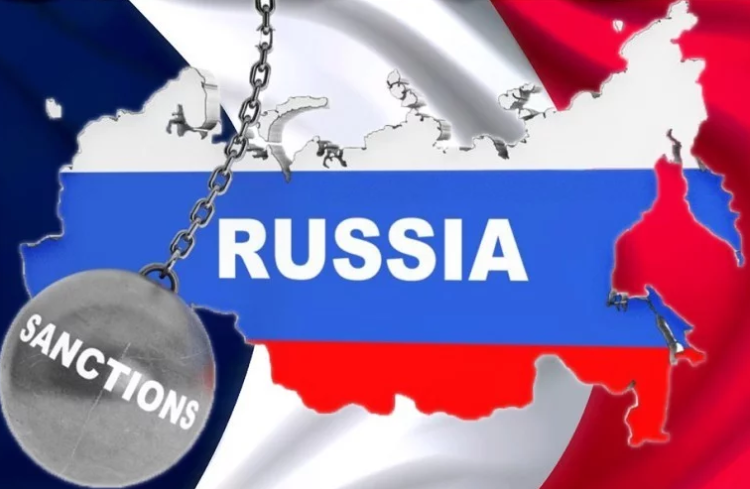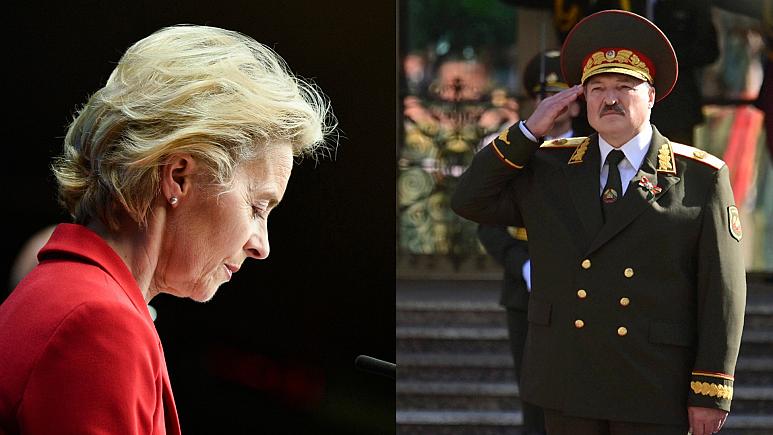
Moscow, Russia – The European Union (EU) imposed sanctions last week on Belarusian President Alexander Lukashenko in opposition to the leader’s month-long political crackdown. The EU, at loggerheads with Belarus and Russia, went one step further by also sanctioning Russian officials in retaliation for a nerve agent attack on Alexei Navalny, the Kremlin’s most influential opponent.
The EU’s action is a direct attack on Russian President Vladimir Putin. The Belarusian and Russian governments have strongly retaliated creating a political mess in Eurasia. The Current Affairs Times team, in an exclusive series of interviews with the EU and Russian government top officials, is unraveling the complexities involved amid this region’s political chaos.
Ahead of the Belarusian elections, Lukashenko locked up most of his key opposition leaders. His main opponent, Svetlana Tikhanovskaya, now lives in exile in Lithuania. Today, protesters have contempt for the August elections that returned Lukashenko to power, declaring them to be illegitimate.
The EU’s actions amount to a tumultuous response to political violence in Eurasia. Despite mixed attitudes about engaging with Putin, the EU is imposing sanctions on Russia. France and Germany pushed for this in response to attacks on Alexei Navalny with a Novichok-type nerve agent developed by the Soviet government. Navalny is a key political opponent against President Putin.
Dmitry Peskov, the Kremlin’s spokesperson, maintains that allegations about Navalny’s assassination attempts are baseless especially since Germany and the EU are refusing to share intelligence with the Russian government. The Russian Foreign Ministry has insisted that Germany provide data on the results of Navalny’s biochemical tests. Berlin has chosen to ignore this request. According to the Russian government, Germany has no interest in investigating the true cause of Navalny’s coma.
The EU’s Stand
The Current Affairs Times exclusively interviewed Peter Stano, the European Commission’s lead spokesperson for Foreign Affairs and Security. We learned that the EU sanctions levied on Lukashenko result from his government’s repression against the people of Belarus. Additionally, Lukashenko’s unwillingness to cooperate with the Organization for Security and Co-operation in Europe (OSCE) to find a solution to the political crisis is problematic for the EU.
Stano confirmed that Lukashenko’s personal shares and financial accounts assets in the EU will be frozen. Lukashenko’s business activities in the EU stand suspended and he will be banned from traveling to the EU and its entities. The European Commission is not recognizing Belarusian authorities’ retaliatory sanctions by insisting their actions against the EU lack teeth.

On the topic of engaging with Putin, Stano confirmed that the EU has already imposed restrictive sanctions on six Russian individuals and one anonymous entity. Allegedly, these individuals are involved in the assassination attempt of Alexei Navalny. The restrictive measures include a travel ban to the EU and an assets freeze. The Russian entity being investigated is forbidden from incurring financial transactions with the EU.
The EU will continue to engage with all Russian officials if it is in the EU’s best interest to do so. Of particular interest, Stano observed that Putin had phone calls with the French and German governments about OSCE activities. Since the lines of communication appear open, why have these countries not been able to resolve their differences?
Russia is disregarding the EU restrictions while imposing counter-sanctions against them. The EU is rejecting these sanctions. Stano points out that the EU sanctions are in response to the proliferation of prohibited chemical weapons in Russia, while Russia’s retaliatory sanctions lack ground.
Stano questions how a prohibited chemical weapon was even used in Russian territory? At this point, he only hopes that Russia will choose cooperation with the EU over armed confrontation.
Russia’s Non-Cooperation
In an exclusive with the Current Affairs Times, Dmitry Peskov, Putin’s press secretary, confirmed Russia’s obvious non-cooperation with the EU. Russia will now act according to its best interest while at all times supporting Belarus. Russia will impose travel restrictions on officials from the EU member states, who will be blocked from entering the Russian Federation.
Officials at the Russian Foreign Ministry directed Current Affairs Times to prior press statements calling the EU’s sanctions absurd — without any real evidence. According to the Russian Foreign Ministry, the EU is the mastermind behind mobilizing support for sanctions against Russia.
Is it safe for the EU to hand over evidence to Russia while it supports countries like Belarus?
This childish blame game will only cause military confrontation. One might ask if these sanctions are symbols of ideology or will politics in this region turn into a cynical farce?
Meanwhile, the nation of Kyrgyzstan could use some help from both the EU and Russia.
Unrest in Kyrgyzstan
Amid political unrest over the elections, Kyrgyzstan’s former president Sooronbay Jeenbekov stepped down. The parliament went ahead and appointed Sadyr Japarov, a Kyrgyz politician freed from prison, as the new prime minister. Officials unilaterally voided the results of parliamentary elections. A protest erupted with almost 700 people injured.
Will the president’s resignation bring an end to the political impasse in Kyrgyzstan, or will the bigger superpowers in Europe hatch another conspiracy here?
Thumbnail Credit: Front News
Sources:
- Exclusive Interview of Peter Stano, Lead Spokesperson of European Commission for Foreign Affairs and Security
- Exclusive Interview of Dmitry Peskov, Press Secretary of Russian President Vladimir Putin
- Russian Foreign Ministry
- Committee to Protect Journalists – Press Statements
Afia is a lawyer, journalist, an avid traveler, an avid reader, a foodie, and an amateur singer. She enjoys instrumental music with her glass of wine ?





